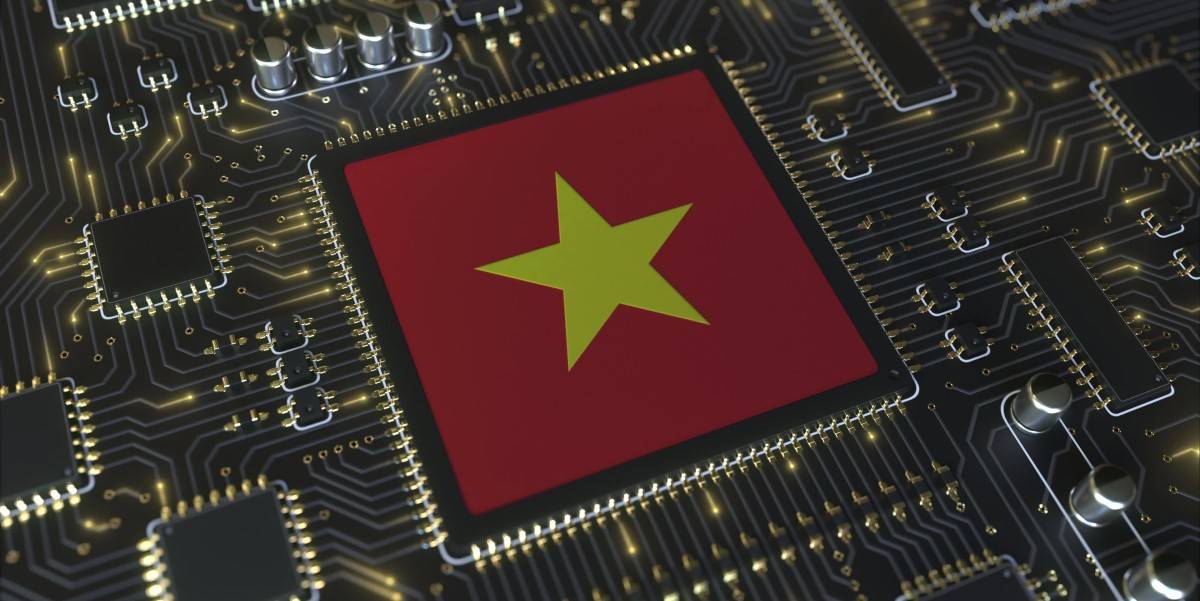Vietnam Becomes Latest Nation To Pitch Itself As A Chip Biz Hub

Vietnam will train 50,000 engineers to work in its semiconductor industry between now and 2030 ,as it seeks to embed itself further into the global chip supply chain.
Speaking at the Sunday launch of the Vietnam Semiconductor Summit and the Vietnam Semiconductor Innovation Network, the country’s minister of planning and investment Nguyen Chi Dung also promised investment incentives for companies in the industry.
While those incentives were not explained, infrastructure for would-be investors is already there in the form of the National Innovation Center (NIC) and three high-tech parks in the cities of Ha Noi, Ho Chi Minh City and Da Nang.
On Saturday, Vietnam's prime minister Phạm Minh Chính inaugurated a new NIC location at Hòa Lạc Hi-Tech Park in Ha Noi.
The US$41.7 million Ha Noi facility features two office blocks and a conference center spread across 20,000 square meter campus.
During the summit, NIC Hoa Lac hosted the Vietnam International Innovation Exhibition 2023 (VIIE 2023) where NIC signed agreements related to innovation, growth of a talent pool, and research in the semiconductor field with the likes of Google, Samsung, SpaceX, and Intel. VIIE 2023 also saw the inauguration of the Samsung Innovation Campus lab and a chip design incubation center from US chip tool maker Vietnam and NIC.
Amid all that activity, newswire Reuters reports Vietnamese officials have already conducted talks major chipmakers regarding construction of a local fab.
- Vietnam admits it has just ten percent of the infosec pros it needs
- Foxconn to spend billions bulking its Indian operations – just for starters
- Not so good morning Vietnam, as government announces, then buries news of Intel investment
- Intel and Samsung impacted as COVID closes electronics factories in Vietnam
According to state news, Vietnam currently relies completely on overseas supplies for its chips, with only two domestic firms, Viettel and FPT, involved in chip design. Chip design processing, assembly and testing lie mainly in the hands of foreign firms. Existing facilities, like Intel's packaging plant in Ho chi Minh City, export their output.
Vietnam has been keen to receive foreign investment as both a means to boost exports and take advantage of manufacturers' desire to diversify supply chains thought to be worryingly dependent on China.
The nation has this year seen investment from Foxconn which leased 45 hectares of land in an industrial in February. Intel has also been known to pour funds into Vietnam as has Samsung. ®
From Chip War To Cloud War: The Next Frontier In Global Tech Competition
The global chip war, characterized by intense competition among nations and corporations for supremacy in semiconductor ... Read more
The High Stakes Of Tech Regulation: Security Risks And Market Dynamics
The influence of tech giants in the global economy continues to grow, raising crucial questions about how to balance sec... Read more
The Tyranny Of Instagram Interiors: Why It's Time To Break Free From Algorithm-Driven Aesthetics
Instagram has become a dominant force in shaping interior design trends, offering a seemingly endless stream of inspirat... Read more
The Data Crunch In AI: Strategies For Sustainability
Exploring solutions to the imminent exhaustion of internet data for AI training.As the artificial intelligence (AI) indu... Read more
Google Abandons Four-Year Effort To Remove Cookies From Chrome Browser
After four years of dedicated effort, Google has decided to abandon its plan to remove third-party cookies from its Chro... Read more
LinkedIn Embraces AI And Gamification To Drive User Engagement And Revenue
In an effort to tackle slowing revenue growth and enhance user engagement, LinkedIn is turning to artificial intelligenc... Read more

